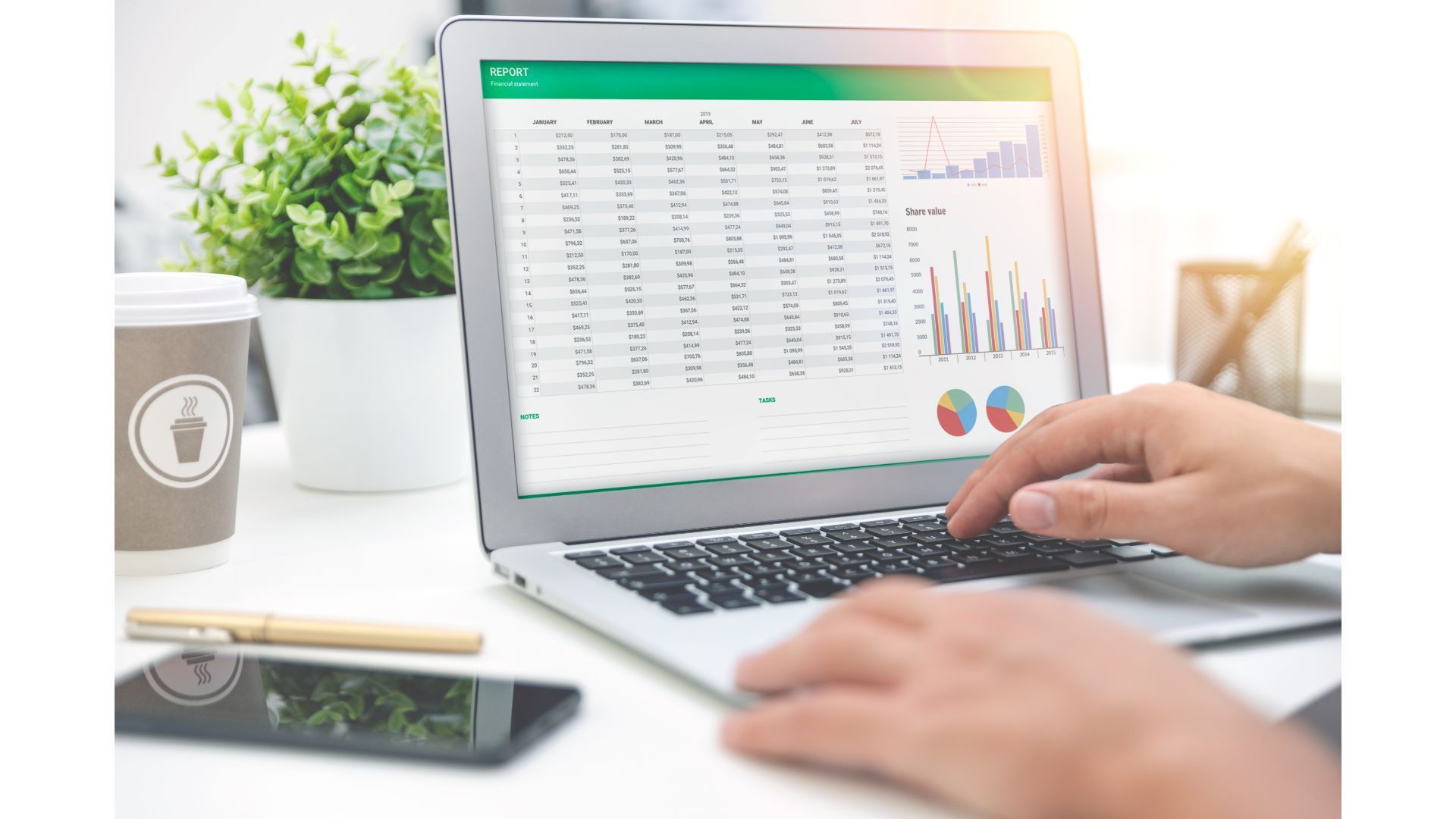What Is A BAS & Do I Need To Submit One?
Submitting a Business Activity Statement (BAS) is a key part of maintaining tax compliance, however understanding what a BAS is and who needs to submit one can be confusing.
In this blog, we’ll break down everything you need to know about BAS, including what they are, who needs to lodge one and how to stay compliant with the Australian Taxation Office.
What Is a BAS?
A Business Activity Statement, commonly known as BAS, is a tax reporting requirement for businesses registered for Goods and Services Tax (GST) in Australia. The statement helps businesses report and pay their tax obligations, including:
- Goods and Services Tax (GST)
- Pay As You Go (PAYG) withholding
- Pay As You Go (PAYG) instalments
- Fringe Benefits Tax (FBT) instalments
- Luxury Car Tax (LCT)
- Fuel Tax Credits (FTC)
- Wine Equalisation Tax (WET)
The ATO uses the information provided in BAS to track and collect taxes owed by businesses. While GST is the primary focus for most businesses, the BAS can also cover other tax obligations, depending on the size and type of business.
Who Needs to Submit a BAS?
Not every business needs to submit a BAS; the requirement to lodge a BAS depends on whether the business is registered for GST. Here’s how it works:
- Businesses registered for GST: If your business has an annual turnover of $75,000 or more, or $150,000 or more for not-for-profit organisations, you are required to register for GST. Once registered, you must submit a BAS to report on GST and any other tax obligations.
- Businesses not registered for GST: If your business turnover is below the GST threshold and you have not voluntarily registered for GST, you will not need to submit a BAS. However, you may still have other tax obligations, such as PAYG withholding, which may require a different form of reporting.
- Sole traders: If you operate as a sole trader and your income exceeds the GST registration threshold, you too must submit a BAS if registered for GST. Sole traders with employees may also need to report PAYG withholding through their BAS.
- Businesses with employees: Regardless of turnover, if your business has employees, you may need to report PAYG withholding through your BAS, ensuring that the correct amount of tax is withheld from employee wages.
What Is Included in a BAS?
A typical BAS includes a range of information depending on the taxes your business is required to report. The most common components are:
Goods and Services Tax (GST) Reporting
If your business is registered for GST, you will need to report GST collected on sales and GST paid on business expenses. The BAS form requires you to calculate:
- GST on sales: This is the GST collected from customers when you make taxable sales.
- GST on purchases: This is the GST you’ve paid on your business purchases and expenses.
The difference between the GST you collect and the GST you pay is the amount payable (or refundable) when you submit your BAS. If you collect more GST than you’ve paid, you’ll need to pay the difference to the ATO. If you’ve paid more GST than you’ve collected, you may be entitled to a refund.
PAYG Withholding
If your business employs staff, you are required to withhold tax from their wages and report these amounts to the ATO. PAYG withholding involves:
- Reporting tax withheld from employees' wages: This ensures that the correct amount of tax is deducted from employee salaries and remitted to the ATO.
- Payments to the ATO: The withheld tax must be paid to the ATO regularly, often when submitting your BAS.
PAYG Instalments
If you are required to pay income tax through the PAYG instalment system, you will need to report these instalments on your BAS. PAYG instalments help businesses manage their income tax payments throughout the year, rather than facing a large bill at the end of the financial year.
Other Taxes (if applicable)
Some businesses may need to report on additional taxes such as Fringe Benefits Tax (FBT), Luxury Car Tax (LCT), Fuel Tax Credits (FTC), or Wine Equalisation Tax (WET). These obligations are less common but are still part of the BAS for businesses that fall into these categories.
How Often Do You Need to Submit a BAS?
The frequency of BAS lodgement depends on your business’s annual turnover and other factors. Typically, businesses will be required to submit a BAS either:
- Monthly: Large businesses with an annual turnover of $20 million or more must lodge their BAS monthly.
- Quarterly: Most small to medium-sized businesses lodge their BAS quarterly. This is the most common BAS reporting cycle for GST-registered businesses.
- Annually: In some cases, businesses with very low turnover can opt for annual BAS lodgement, but this is rare.
The due dates for BAS lodgements are fixed, and it’s crucial to stay on top of them to avoid penalties. Quarterly BAS lodgements are due on:
- 28 October (for July – September)
- 28 February (for October – December)
- 28 April (for January – March)
- 28 July (for April – June)
If your BAS is lodged late, the ATO may apply penalties or interest, so it’s essential to ensure timely submission.
How Do You Submit a BAS?
There are several ways to submit your BAS to the ATO, depending on your preference and the size of your business. The most common methods are:
- Online through the ATO Business Portal: Many businesses use the ATO’s Business Portal to lodge their BAS online. This is often the quickest and most convenient method, allowing you to submit directly to the ATO.
- Through your accounting software: Modern accounting software, such as Xero, MYOB or QuickBooks, often has built-in BAS submission capabilities. This allows businesses to complete their BAS directly from their software, saving time and reducing errors.
- Via a registered tax or BAS agent: If you prefer to outsource your tax reporting, you can engage a registered tax or BAS agent to submit your BAS on your behalf. This is a popular option for businesses that want to ensure their lodgements are accurate and compliant.
Do I Need to Submit a BAS?
Whether or not you need to submit a BAS depends on a few key factors:
- Are you registered for GST? If your business is registered for GST, you must submit a BAS, even if you have no GST to report. If you aren’t registered for GST, you don’t need to lodge a BAS.
- Do you withhold PAYG for employees? If your business has employees and is required to withhold tax, you must submit a BAS to report these amounts.
- Do you pay other taxes covered by BAS? If your business is subject to additional taxes such as FBT, LCT, or WET, you must report them through your BAS.
If you are unsure whether you need to submit a BAS, get in touch with Zenith Accountants & Advisors on the Gold Coast.
Conclusion
By understanding what’s required, who needs to submit one and how to do it, businesses can avoid penalties and stay on top of their tax obligations.
Whether you choose to submit your BAS manually or through automated accounting software, keeping accurate records and ensuring timely lodgement is key to maintaining a healthy business.
Written By Tom Thynne
Tom is the director of Zenith Accountants & Advisors. With over seven years of public practice experience, Tom can see what it takes to make a business successful. Tom is a Chartered Accountant, Financial Planner, Registered Tax Agent and Certified Advisor in QuickBooks Online and Xero.
Address
Unit 2/43 Township Drive
Burleigh Heads, Gold Coast
Zenith
Accountants









